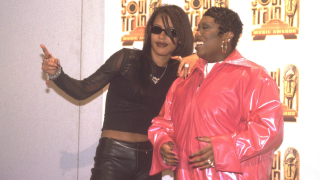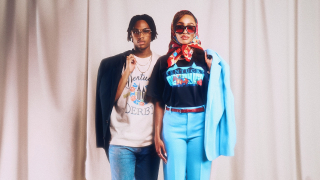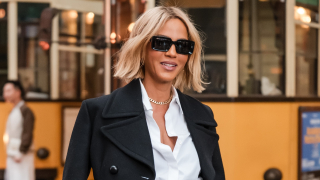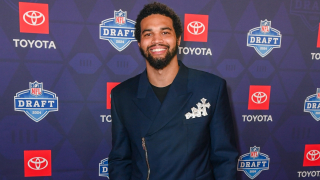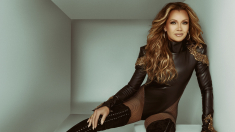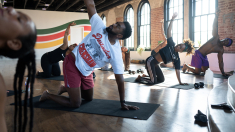Arrested in Russia last month for allegedly possessing a controlled substance (hash oil), WNBA Star and Two-Time Olympic Champion Brittney Griner’s detainment becomes more complicated by her advocacy and place within the LGBTQ movement – something Russia has been critical of and has pushed back against, for decades.
There are so many layers and levels to what’s happening with basketball star Brittney Griner, none more important than her safety which is very much up in the air right now while she’s being detained in Russia.
Griner, a WNBA star, two-time Olympic champion, and an outspoken advocate for LGBTQ rights, plays in Russia during the WNBA’s offseason and was arrested last month while in Russia for reportedly having a “narcotic substance”—hash oil.
If found guilty, Griner could be sentenced to as many as 10 years in jail.
The fear that so many have is that the Russian government will use the allegations levied against Griner as a political football to restore some or all of the many sanctions the United States has put in place as a response to Russian President Vladimir Putin’s unprovoked invasion into Ukraine which has already led to thousands of deaths of innocent citizens of Ukraine.
But the real fear when it comes to Griner centers around how she is being treated in a country that has been anything but hospitable to the LGBTQ+ community.
This comes at a time when diplomacy between the United States and Russia is at a low point because of Russia’s unprovoked invasion of Ukraine.
It’s impossible to ignore the implications of the Russia-Ukraine conflict, and how that will impact Griner’s situation.
"Whatever kind of bargain could normally be worked out at the political level is going to be much harder to work out right now," Tom Firestone, a former resident legal adviser at the U.S. Embassy in Moscow, told Yahoo! Sports. "We're as close to cutting off diplomatic relations as you can be without actually cutting off diplomatic relations. That's not a good environment to negotiate the release of a detainee."
While much of the focus has been on the Russian invasion into Ukraine impacting Griner’s freedom, her position as a staunch advocate for LGBTQ+ rights—and how that goes directly against the political temperature of Russia when it comes to the LGBTQ+ community—can not be ignored.
In an interview with SI.com in 2013, Griner revealed publicly that she was a lesbian and explained her thoughts on why coming out seems to resonate differently with female athletes than their male counterparts.
"I really couldn't give an answer on why that's so different," said Griner. "Being one that's out, it's just being who you are. Again, like I said, just be who you are."
And that has been both the beauty and burden of being Britney Griner. She has an undeniable presence about her that is to the good of the LGBTQ+ movement. But it also makes her a highly visible target for critics.
When you combine those factors with her being detained in Russia, void of a clear path towards freedom, there are ample reasons to fear that her LGBTQ+ position might become an issue.
Throughout Griner’s journey to being one of the best women to ever play the game of basketball, her sexuality has often led to her being bullied which unfortunately is an all-too-common reality for young and not-so-young members of the LGBTQ community.
But Griner’s 6-foot-8 size, her power as a player, and her presence as a human, only added to her global reach in adding allies in the LGBTQ+ movement.
There are many countries that not that long ago, weren’t as welcoming to those within the LGBTQ+ community as they are today.
And then there are countries like Russia that remain in the dark ages when it comes to inclusivity
According to statista.com, Russia ranks as the fifth-worst European country to be gay in.
Russian President Vladimir Putin has made his feelings toward members of the LGBTQ+ community quite clear, going so far as to push legislation that would center around, “traditional Russian values” which included, "defending the institution of marriage as a union of a man and a woman."
He has at times tried to dismiss “the rights of sexual minorities” along with conflating homosexuality with “pedophilia.”
Again, it’s important for Griner to gain her freedom sooner or later, for sure.
But just as important is to understand the world that Griner is in right now, trapped in a country that doesn’t respect who she is as a person.






